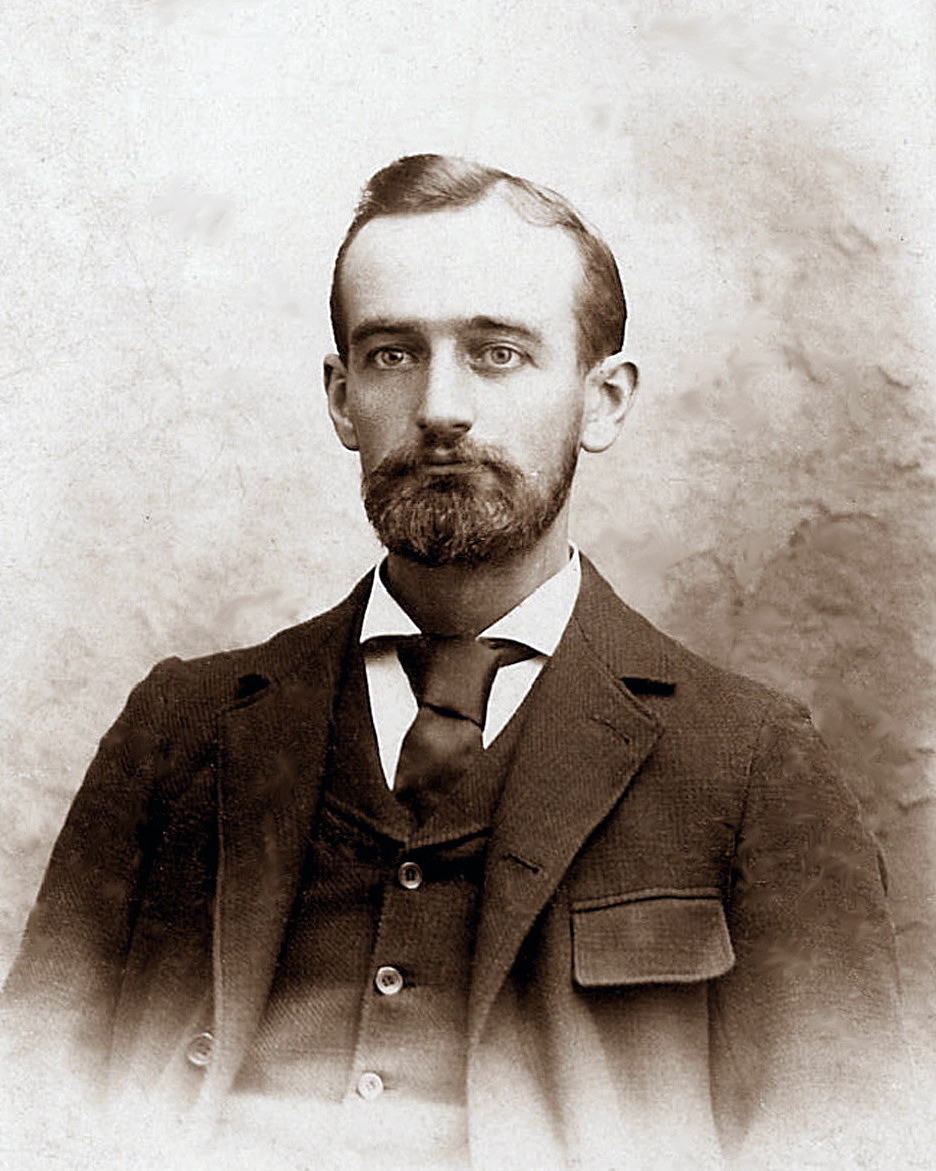The Trump name has become synonymous with wealth and power in the United States, but the origins of this dynasty trace back to a humble beginning in a small Bavarian village. Frederick Trump, the grandfather of former President Donald Trump, embarked on a remarkable journey that would eventually shape the destiny of the Trump family. This article delves into Frederick’s life, his immigrant experience, and the pivotal role he played in laying the foundation for the Trump dynasty.
Frederick Trump, originally named Friedrich, was born in 1869 in Kallstadt, a quaint village in what was then the Kingdom of Bavaria. He was the sixth child of a family of grape growers struggling to make ends meet. The untimely death of his father, Johannes, in 1877 left the family burdened with debt and financial uncertainty.
While most of the children were expected to work in the fields to support the family, Frederick’s mother, Katharina, believed he was not physically suited for such labor. Instead, she encouraged him to pursue a less physically demanding career, leading him to become a barber’s apprentice at the age of 14.
Frederick, or Friedrich as he was known before arriving in the United States, dedicated himself wholeheartedly to learning the art of barbering. He worked tirelessly for two years to become a skilled barber.
However, upon completing his apprenticeship, he faced a stark reality. Kallstadt, with its small population, could not sustain his newly acquired profession. This realization led him to make a life-altering decision—to immigrate to the United States in search of better opportunities.
The circumstances surrounding Frederick’s departure from his homeland remain shrouded in mystery. Some accounts suggest that his mother persuaded him to leave, while others claim he left secretly one night, leaving his family with only a note. Notably, he did not formally notify the government of his intentions, as was required at the time. Regardless of the circumstances, Frederick Trump set sail for America in 1885, becoming one of the countless immigrants seeking a brighter future.
A New Beginning in New York

Upon arriving in New York, Frederick Trump faced the daunting process of immigration inspection. Immigration officials noted that he lacked a formal occupation, highlighting the challenges faced by many newcomers to America. However, Frederick had an advantage—his sister Katherine had already immigrated to the U.S. a few years prior, settling in New York and marrying a clerk named Friedrich. Frederick stayed with his sister in the thriving German immigrant community of Chinatown.
While in New York, Frederick Trump saved several hundred dollars, a modest but significant sum at the time, equivalent to roughly $10,000 today. In 1891, armed with his savings and an entrepreneurial spirit, he decided to move to Seattle. It was in this booming city that he began investing in real estate, a move that would set the stage for the Trump family’s future prosperity.
The Poodle Dog Restaurant
Frederick’s initial venture in Seattle was the acquisition of a restaurant located in the heart of the city’s red light district, known as the Lava Beds. He named it “The Poodle Dog,” later renaming it the “Dairy Restaurant.” It’s important to clarify a common misconception that Frederick’s wealth primarily came from the sale of drinks and services related to prostitution. His earnings were largely derived from his work as a barber.
The Trump Name and Its Origins
The Trump surname, a combination of English and German roots, carries an interesting history. It is believed to have originated from a German word possibly meaning “drum.” This name, with its dual linguistic heritage, reflects the multicultural tapestry of the United States. Today, it is primarily associated with the Trump family, who rose to prominence over generations.
Fred Trump, the father of Donald Trump, played a pivotal role in shaping the family’s financial legacy. When Fred Trump passed away, his estate was estimated to be worth between $250 million to $300 million. However, a noteworthy fact is that he had only $1.9 million in cash at the time of his death. Despite this, Fred Trump’s will ensured that over $20 million, after taxes, would be distributed among his surviving children and grandchildren. This distribution of wealth laid a significant foundation for Donald Trump’s future endeavors.
Donald Trump, the most famous member of the Trump family, has become a household name not only in America but worldwide. While various estimates of his wealth have circulated, Forbes estimates his net worth at $2.6 billion as of 2023.
Trump’s financial journey involved a combination of gifts, loans, and inheritance from his father, Fred Trump. His primary business focus has been in real estate ventures, which include hotels, casinos, and golf courses. This substantial wealth and business acumen propelled him into the realm of American politics.
Facts About The Trump Family That You Didnt Know
- To fully grasp Frederick Trump’s remarkable journey to America, it’s essential to contextualize it within the broader historical narrative of late 19th-century German immigration. During this period, waves of German immigrants sought refuge in the United States, driven by economic hardships and political instability in their homeland. Frederick Trump’s decision to leave Bavaria and embark on an arduous voyage across the Atlantic Ocean reflects the aspirations shared by many of his compatriots. He was part of a larger movement of individuals seeking better opportunities in the land of the American dream. This historical perspective helps us understand the challenges, hopes, and motivations that shaped Frederick Trump’s decision to come to America.
- While Frederick Trump’s early real estate investments in Seattle are well-documented, it’s crucial to examine the enduring legacy of these ventures. His initial foray into real estate not only laid the foundation for the family’s wealth but also established a trajectory that future Trump generations would follow. This legacy extends beyond financial success, encompassing the family’s continued involvement in real estate development, from New York’s iconic Trump Tower to various other properties worldwide. By delving into the long-lasting impact of Frederick Trump’s real estate decisions, we gain insight into the family’s enduring influence in the industry.
- Family played a pivotal role in Frederick Trump’s journey and success in America, a facet often overlooked. His sister Katherine, who had already immigrated to the U.S. and established herself, provided a crucial support system. She not only offered Frederick a place to stay but also a foothold in the American landscape. This familial bond highlights the significance of family support for immigrants navigating the challenges of a new country. By exploring this dynamic, we gain a deeper appreciation of the role of family in Frederick’s American story.
- Drawing comparisons between Frederick Trump’s immigrant experience and that of other notable immigrants of his era allows us to appreciate the diversity of paths individuals took to pursue the American dream. Examining the unique challenges, choices, and opportunities encountered by immigrants such as Andrew Carnegie, Albert Einstein, or Nikola Tesla alongside Frederick Trump provides a broader perspective on the immigrant experience in the late 19th century. These contrasting stories help us understand the various routes immigrants embarked on in their pursuit of success in the United States.
- Tracing the evolution of family values within the Trump family, from Frederick’s generation to that of Donald Trump, unveils a continuum of principles that have guided them through the generations. Values such as entrepreneurship, resilience, and ambition were instilled in Frederick and passed down to subsequent family members. This transfer of values played a pivotal role in shaping the family’s trajectory and their commitment to achieving success in various fields. By examining this evolution, we gain insights into the enduring values that have defined the Trump family’s journey from Frederick’s arrival in America to Donald Trump’s presidency.
Frederick’s decision to leave his Bavarian village and embark on an arduous journey to the United States laid the foundation for a family legacy characterized by entrepreneurship and resilience.
His early real estate ventures in Seattle were not only financially significant but also set in motion a trajectory that led to the family’s prominence in various industries, most notably real estate, and politics.




